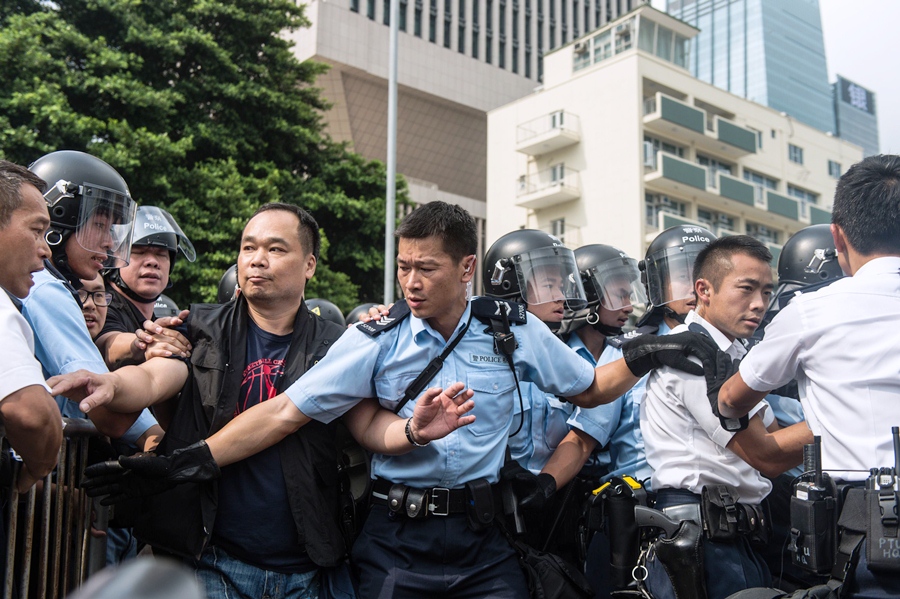
Hong Kong’s dual battle: Covid-19, 'national security'
Coronavirus cases rise to over 4,100 in semi-autonomous region
Hong Kong, the semi-autonomous region under China, is now fighting on two fronts – the Covid-19 pandemic as well issues of national security, seen through the prism of a controversial new law.
The coronavirus infection appears to have spread faster than expected, as cases have climbed to over 4,148. Four people died since Monday, bringing the death toll to 56, daily South China Morning Post reported.
Of the total cases, at least 2,917 of the coronavirus patients have recovered and been discharged from hospital, China’s national health commission said in a statement today.
Hong Kong’s Center for Health Protection (CHP) said its “epidemiological investigations and relevant contact tracing” of confirmed cases are ongoing.
China slaps sanctions on US over Hong Kong unrest
The center called on the public to “avoid going out, having social contact and dining out,” also urging them to wear masks.
“Given that the situation of COVID-19 infection remains severe and that there is a continuous increase in the number of cases reported around the world, members of the public are strongly urged to avoid all non-essential travel outside Hong Kong,” the center said.
In mainland China, 44 new cases were reported, including 13 indigenous cases in Xinjiang, northwest China, home to the ethnic Uighur community.
China has reported 84,712 confirmed cases and 4,634 deaths due to Covid-19 ever since its outbreak in Wuhan last December.
Arrests
Meanwhile, since China passed a controversial national security law for Hong Kong, the police have made many arrests, accusing people of compromising national security. The law has drawn severe criticism from the West.
In its latest statement, the Hong Kong police said nine people as old as age 72 have been arrested since Monday morning on “suspicion of breaches of the national security law.”
The tough choices for China over Hong Kong unrest
“Offences include collusion with a foreign country/external elements to endanger national security,” the statement added.
The latest arrestees include Jimmy Lai Chee-ying, a billionaire media tycoon who founded the Apple Daily tabloid in Hong Kong. The police also raided the newspaper’s offices.
The daily hit the newsstands as usual with a photo of Lai in police custody, saying, “Apple will stride on,” the Hong Kong Free Press reported.
Responding to the arrest, the White House national security adviser said the US is "deeply troubled."
Wilson Li, a freelance journalist with Britain’s ITN, was also arrested, along with activist Andy Li, over their connection to the NGO Fight for Freedom, Stand with Hong Kong. Under the national security law, police have accused them of “collusion with foreign powers.”
Reports also claimed that a new national security unit has been set at Hong Kong Immigration Department that vets work visas for journalists.
The new law, in effect since last month, criminalizes anti-China sentiments in the region, which continued to serve as a vibrant economic hub after the UK handed it over to Beijing in 1997 under a vow that it would enjoy a "high level of autonomy" for 50 years.





1732101971-1/Copy-of-Untitled-(53)1732101971-1-270x192.webp)









COMMENTS
Comments are moderated and generally will be posted if they are on-topic and not abusive.
For more information, please see our Comments FAQ